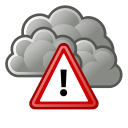We have over 20 years of experience fixing washing machines and can certainly help if your’s is on the fritz. We also offer regular service and maintenance for your washing machine to address issues quickly and prevent problems before they occur.
Washing Machine Types:
- Front-Loading Washing Machines
Front loading washers typically offer better cleaning than the top-loading models. Some of these models help conserve water by determining the amount necessary based on the weight of the clothing. These models are are also quieter and extract moisture better than top loading models, which can reduce the drying time needed. Front loading washing machines require high efficiency detergent designated by a ‘HE‘ label on the container of detergent. - Top-Loading Washing Machines
Top-loading washers have been the most common type of washer used in Colorado and allow easy access for loading and unloading, they wash clothes faster and use more energy and water than front load models. These traditional models feature a central agitator for moving and cleaning clothes. Some of the newer high-efficiency top loading models are agitator-free, using new technology to move your clothes through a series of directional movements during the wash cycle. These high-efficiency, to- loading washing machines require high efficiency detergent as well. - Combination Units
Also referred to as stackables or all-in-ones, these feature a washing machine with a dryer stacked on top, allowing them to fit into a smaller space but still cater to normal size loads. - Compact Washing Machines
Smaller, compact washing machines can be stored in a closet or under a counter and pulled out when needed.
Washing Machines – Common Issues
- The washing machine is completely dead.
Most often the cause is a tripped, off-balance switch from an imbalanced load that can be easily rectified by redistributing clothes. Otherwise, you may have a problem with the timer circuitry, the motor, or your outlet. - There is no agitation.
There are many causes for no agitation including bad seal valve, clogged pump and a bad pressure switch . It may also be caused by a bad lid switch or malfunctioning pressure switch. - The washing machine is not spinning.
Soaked clothes at the end of the wash cycle indicate the washer is not spinning. The many possibilities include a defective lid switch, burned out spin solenoid, worn or broken drive belt, or a bad timer contact. - Water is not draining properly.
Water will remain in the drum if you have a defective pump, worn drive belt, or clogged drain hose. - The washing machine leaks.
Usually caused by loose hoses, drain pipe clogs, and leaking pumps, tubs, or tub seal could be to blame. - Excessive vibration.
Your washer may not be leveled properly or is located on a weakened wood floor. Front load washers spin very fast which causes the floor to shake. - Wash cycles leave soap in clothes.
Not draining properly or excessive soap may be to blame. - There is no cold water.
The cold-water valve may be turned off or there may be sediment buildup in the valve. - Wash cycles leave spots on clothes.
Spots that won’t remove with soap and water may be transmission oil, bearing issues or even dryer sheets may leave spots.
Washing Machines and Dryers often require maintenance.
 Don’t let laundry pile up from a broken down washer, contact Appliance Medic today and setup regular washer maintenance every year. Appliance Medic provides professional service and a speedy resolution for all of your washer repair needs.
Don’t let laundry pile up from a broken down washer, contact Appliance Medic today and setup regular washer maintenance every year. Appliance Medic provides professional service and a speedy resolution for all of your washer repair needs.
Call today if you need appliance repair for washing machines and/or dryer.

